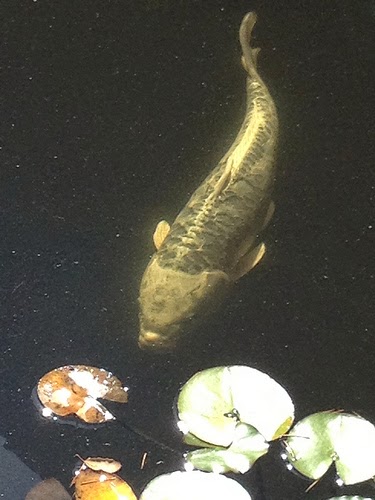Language Acquisition
In linguistic scholarship, theorizing about the origins of language has been the object of some disdain, mainly because it is largely absurd (see the article in Wikipedia - which has itself been the object of some disdain, for the same reason). Some of the more common theories go by names like the "bow-wow theory," the "pooh-pooh theory," the "yo-he-ho theory."
So of course I'm thinking of weighing in. This would be my theoretically indefensible but intuitively persuasive approach (every theory, especially those propounded via the Internet, needs something like this): that the origins of linguistic ability in the individual may shed light on the historical origins of language. Or, as the biologists used to say, "ontogeny recapitulates phylogeny." (This phrase is simultaneously catchy and virtually incomprehensible.) Probably some version of this theory has already been fleshed out, widely disseminated, and debunked, but what the hell.
Here's the thing: Girl (at 20 months +) is finally (perhaps somewhat belatedly, I'm not really sure, but anyway well within the bounds of normal development) jumping into sentence structure - and sentences, not words, are what language is all about. Words are great, don't get me wrong, but chimps can use words. They can even string words together so as to create meaning, particularly in the minds of credulous human observors. What chimps can't do, in any meaningful way, is generate syntactic strucures that rise to the level of even rudimentary human language. So, in short, I'm with Chomsky and the mathematical formalists here, I'm more or less taking semantic content as read (i.e., too complex to bother with), and going with the syntax = language formulation.
Anyway, now that Girl is starting to string together three-word sentences, I can start to get some idea of her cognitive processes through her language skills, and it's fascinating. Her first three-word sentence: "Emma, dadda, Ah!" - or, if I may translate: "Emma's daddy [is] Al." (You'll have to trust me on this.) She says it with a vehemence that is touching, bordering on frightening, so intent is she on nailing down that particular facet of the world she inhabits. (She says it a lot, too, and not only because my wife and I are constantly asking her, "G, who's Emma's dad?")
Boy's early acquisition of language was rather different from Girl's. I have video of Boy, at roughly Girl's age, picking up his favorite board book, a picture/word book, standing at a chair and turning the pages and pointing at each picture, demanding "s'aman?" ("S'aman" was apparently his version of "Como se llama?" which he knew because his babysitter spoke mostly Spanish.) Boy was very intent on picking up words, naming his world, establishing labels for things. Girl seems much more interested in establishing relationships between people and things. Part of this is doubtless due to her status as younger sibling - it is more an issue with her whether "baby" (doll) is "mine" or Boy's; whether those shoes belong to "mama!" or "dad!"; that "Emma's dada [is] Al." Part of it is probably due to her being a girl, and being interested in people in a different way than Boy was at that time of life.
I remember Boy's first three-word sentence, or at least the first one he thought important enough to repeat often: "Robin, bang - flew!" He was recounting the story of a robin that had flown (with a startling BANG!) into the picture window of the cabin where we were staying - fallen stunned to the deck - then recovered and flown away.
So here's my nascent theory: language is an innate talent in humans, but its development is driven by some of the same mental processes that develop social and emotional skills. That is, language development is simultanously a byproduct of, a key component of, and a motivating force behind, the human brain's attempts to structure and explain to itself the nature of the world in which it has found itself. In other words, whatever its basis in innate human cognitive or physiological brain structures, language development is driven by the storytelling impulse.
Is this old news? I spent nearly all my time at Stanford studying formal linguistics, mathematical models of syntax, and computer science; precious little time delving into semantics; and no time at all on sociolinguistics or language development in children. But it seems to me, as I grow up (or at least, grow old) that storytelling underlies nearly all of what we do, how we think, how we live and how our culture has evolved.


4 Comments:
Reminds me of one of my own musings.
I dimly remember reading a ~2 paragraph just-so story of the origin of language somewhere in philosopher Ian Hacking's "Representing and Intervening," which I thought nifty and compelling at the time. Alas I can't remember it.
Aha! Here it is.
Too bad: The link she dies. If you want to retrace my (worthwhile if I do say so) steps,go to Amazon's page for the book
http://www.amazon.com/gp/product/0521282462/102-0341368-5563315?v=glance&n=283155
and do a "search inside" with "homo depictor origin language." My original link was to my hit from such a search. The passage is a couple pages long.
Post a Comment
<< Home